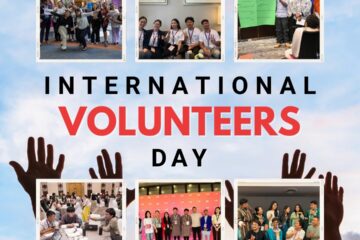2021 Report of the High-Level Commission on the Nairobi Summit on ICPD25 Follow-up

The first report of the High-Level Commission on the Nairobi Summit on ICPD25 Follow-up, finds progress on some of the Nairobi commitments, but overall notes a harrowing setback in sexual and reproductive health and rights around the world, and calls for ambitious, deliberate and comprehensive action to achieve sexual and reproductive justice for all, in particular women and girls.
The Commission, an independent advisory body, co-chaired by H.E. Jakaya Kikwete, Former President of the United Republic of Tanzania and H.E. Michaëlle Jean, 27th Governor General of Canada and former Secretary-General of the International Organization of la Francophonie, consists of eminent leaders from diverse sectors, from around the world and was formed to track progress on the commitments in the Nairobi Statement. These are twelve core, overarching commitments, that encapsulate the over 1,300 voluntary commitments made by Governments and other stakeholders at the landmark Nairobi Summit on ICPD25 that took place in November 2019.
The report highlights sexual and reproductive rights as a basic prerequisite for achieving the commitments, while also pointing to the fragility of rights, which remain far out of reach for many people, and argues for a comprehensive agenda for sexual and reproductive justice. The report notes that the global COVID-19 pandemic has laid bare the glaring inequities of people who face different, intersecting forms of discrimination based on their gender, race, age, disability, poverty, and status as a migrant or refugee.
The Commission’s report considers constraints on quality, accessible sexual and reproductive health care due to the pandemic that have undermined or delayed progress on the 12 commitments. At the same time, it highlights innovations born out of necessity that have kept services going and even offered new models that can be more widely replicated.
The report also takes up the financing of the ICPD agenda and the financial commitments, both domestic and international, reflected in the Nairobi Statement. It calls attention to concerning developments to defund sexual and reproductive health and rights. In the last chapter of the report the Commission’s looks into forces propelling and pushing back against advances on the Nairobi commitments, and the levels of accountability that will keep progress on track towards sexual and reproductive justice.
The report concludes with the Commission’s Call for Action for all relevant partners, including governments, civil society, the private sector, academia, the United Nations and other international bodies to join forces in order to accelerate action and ensure accountability for sexual and reproductive health and rights, for justice and development, in line with the Nairobi Statement, the ICPD Programme of Action and the 2030 Agenda for Sustainable Development. It calls for ambitious action to end shortfalls in sexual and reproductive health and rights that cost lives, destroy health and slow development around the world. The report furthermore includes an elaborate annex that summarizes key global indicators for the global commitments in the Nairobi Statement and presents their current status, globally and regionally, using the most recent available data in a traffic-light matrix.
Source : https://www.nairobisummiticpd.org/publication/no-exceptions-no-exclusions


